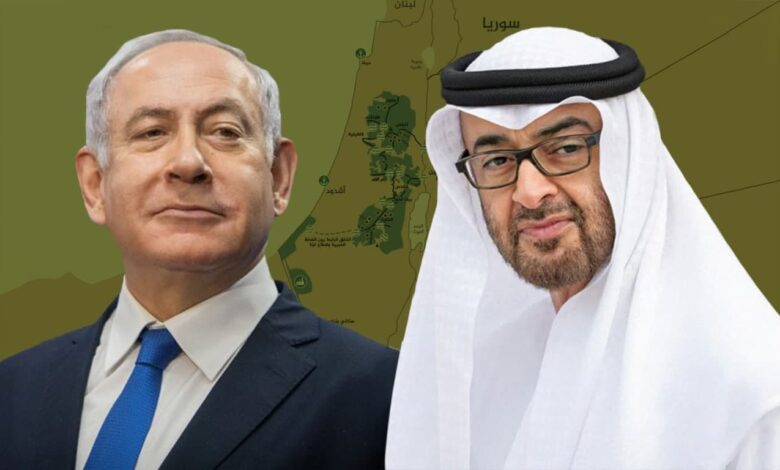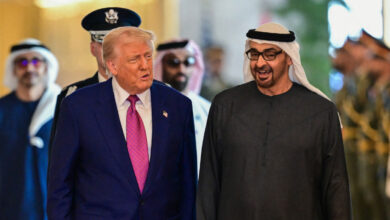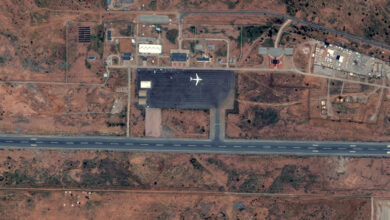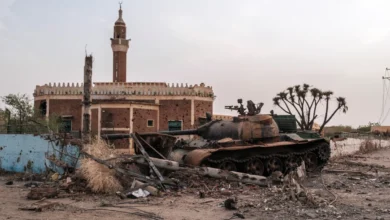Full Report: Abu Dhabi’s Divide-and-Rule Strategy: The UAE’s Role in Separating Gaza from the West Bank
Full Report: Abu Dhabi’s Divide-and-Rule Strategy: The UAE’s Role in Separating Gaza from the West Bank

Introduction
Since the onset of Israel’s war on Gaza in October 2023, the United Arab Emirates has pursued a quiet but aggressive strategy that risks severing Palestinian national unity. While most Arab states publicly backed post-war plans centering the Palestinian Authority and a two-state framework, the UAE has played the spoiler — working in lockstep with Israeli and U.S. officials to promote a fragmented, post-Hamas reality.
UAE Opposition to Arab League Consensus
Dark Box investigations reveal that the UAE actively lobbied against an Arab League plan for Gaza that would have restored Palestinian Authority governance and included Hamas as a political actor. Instead, the Emiratis pushed alternative frameworks more aligned with the U.S.-Israeli “normalization-before-statehood” logic.
In February 2024, Ambassador Yousef Al Otaiba openly declared that the UAE saw “no alternative” to the controversial “Gaza Riviera” plan — a euphemism for mass displacement and economic pacification. This alone signaled how far the Emirati position had drifted from even minimal Arab consensus.
Displacement and Dahlan: Abu Dhabi’s Alternative Vision
Beyond policy statements, the UAE reportedly supported Israeli lobbying to displace Gaza’s population into the Sinai — a move that deeply angered Egyptian officials, although relations remained superficially intact due to Emirati financial support to Cairo.
Central to the Emirati strategy is Mohammed Dahlan, an exiled former Fatah leader with no political base in Palestine but extensive ties to intelligence and security networks in Abu Dhabi. Dahlan has quietly become the UAE’s go-to figure for Palestinian affairs, raising concerns that Abu Dhabi seeks to install a proxy government in post-war Gaza.
Dahlan’s presence in regional hotspots, from Libya to Sudan, also mirrors the UAE’s broader counterrevolutionary agenda, often aligning with Israeli and Western interests against popular uprisings and self-rule.
Fragmentation as Strategy
“There are tacitly two files. One on Gaza and one on the West Bank,” said a regional expert speaking to Dark Box. “And the UAE has influence over neither but wants to control both.”
Instead of directly opposing the Arab League, the UAE presents itself as a “moderate” player, quietly undermining collective Arab decisions through bilateral lobbying, financial leverage, and diplomatic maneuvering.
Somaliland and Ethnic Displacement
In perhaps the most alarming development, reports indicate that the UAE has pressed Somaliland to accept forcibly displaced Palestinians in exchange for U.S. recognition of the breakaway republic. This proposal — if true — amounts to outsourced ethnic cleansing, with Abu Dhabi playing matchmaker between U.S. strategic interests and local governments.
Conclusion: Normalization Above All
Abu Dhabi’s long-term vision is clear: a post-resistance Middle East, built around economic partnerships, Israeli integration, and compliant authoritarian regimes. Palestinian unity, self-rule, and resistance to occupation do not fit this model.
By promoting division, endorsing population displacement, and sidelining Palestinian leadership — both Islamist and secular — the UAE is not just shaping Gaza’s future. It is dismantling the idea of Palestine itself, one lobby meeting at a time.




